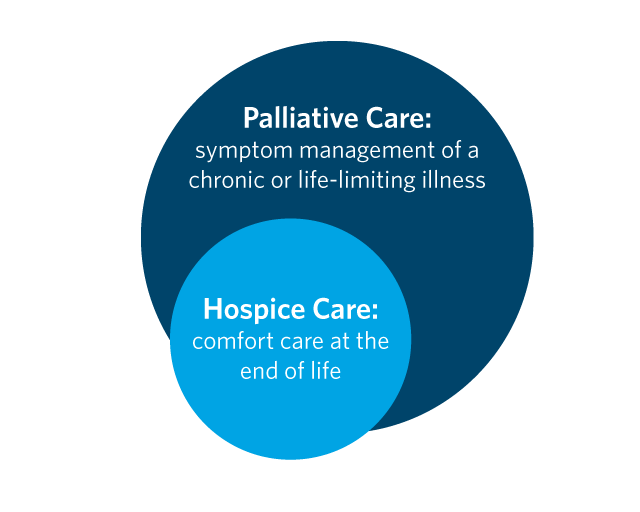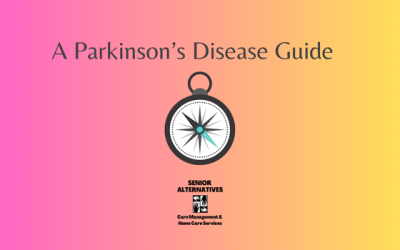May 7, 2021

Palliative care and hospice care are often used interchangeably; however, they are actually two different types of care. Our senior loved ones deserve the very best and these kinds of services are so helpful, in addition to having caregivers by their side. Many of our home care clients have used these types of services in order to maintain their wishes and dignity. Noted below are some simple differentiations between hospice and palliative care. Both care plans have many layers, can be supportive and beneficial and should be discussed openly with medical providers and family members when deciding which is the more appropriate type of care.
MYTH Hospice care is the same thing as palliative care
Fact: They are not the same thing, but palliative care can often be part of a hospice care plan. A hospice team specializes in providing care to those with terminal illness, whereas palliative care includes care for people not necessarily at the end of life. During a serious illness, palliative care can be started at any time. The palliative care team is interdisciplinary, working with a patient, their family, and medical providers to create a plan to address medical, comfort, psychosocial and spiritual needs.
MYTH Palliative care is only for pain and medical symptoms
Fact: Even if the patient is aggressively treating an illness, a palliative care team is available to address questions, track progress and triage with physicians, with the goal of leading the patient to a better, more comfortable quality of life during the course of the illness. There has been research done on how palliative care may lead to measurable improvements in quality-of-life and, in some cases, maybe even lengthen life.
Hospice is for comfort and for those not looking for curative solutions to their illness. When further treatment isn’t desired, hospice teams are wonderful at supporting both the patient and the family during the end-of-life process.
MYTH Palliative care is for people who have given up on treatment and other curative measures
Fact: At any stage of an illness, palliative care can be introduced with the goal of relieving suffering and providing comfort. People managing a chronic condition may benefit from assistance of palliative care in making choices to live the highest quality of life possible. Pain and stress management are also important components of palliative care.
If you, a loved one, or a client of yours may benefit from this type of extra support, we can help you sort through what options may be right for your situation. Our home care services are a great place to start, and extra resources are always worth investigating.
(originally posted by Senior Care Authority)
Palliative care and hospice care are often used interchangeably; however, they are actually two different types of care. Our senior loved ones deserve the very best and these kinds of services are so helpful, in addition to having caregivers by their side.
Related Articles
Boost Cognitive Function Through Brain Exercises
Just like the rest of your body, your brain changes and adapts over time. Through a concept known as neuroplasticity, your brain can form new connections, strengthen existing ones, and even recover lost abilities. Regular mental exercises can have a significant impact on your brain health. Read on to know more…
Why People in Blue Zones Thrive and Live Longer
Blue Zones are regions where people live longer, healthier lives compared to the global average. These areas have been studied extensively to find common denominators and answers about what makes these places unique. One of the key components of these lifestyles is community engagement, or having a strong sense of belonging and support from others. Read on to know more about Blue Zones and how we can duplicate their lifestyle and best practices.
Understanding Parkinson’s Disease
April is Parkinson’s disease awareness month, with that in mind we put together a blog





